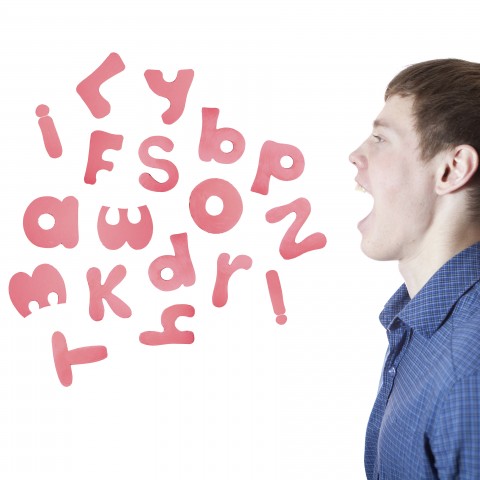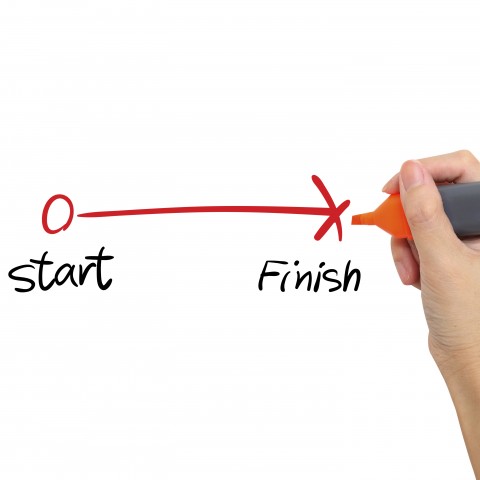
If you’re planning to study or teach in the Czech Republic, this article is just for you. You might be surprised by the subtle differences between Czech and English communication during classes––be it greetings, or how we address the teachers––I know I was.
I first started with English in 3rd grade. I was 8 years old, and learning to say all those new, funny sounds was very exciting and fun. Let me tell you, my 40-something fiancé doesn’t find it quite as exciting, and he’s constantly asking, “why do y’all say this and not that”? And I would like to address these quirky nuances in this article as well. Because no matter how funny and kind our “Mrs. Teacher” was, most of the things she taught us were just literal translations, and watching movies in English 15+ years later brought up a lot of doubt and questions that will remain unanswered. (We called the eraser “rubber.” Fun times.)
In this article, you will learn a lot of Czech words and not-so-basic Czech phrases: Czech classroom greetings and classroom vocabulary in Czech. Do you know how our school system works? No? You will find all the info here.

 Table of Contents
Table of Contents
- Good morning, Mrs. Teacher: Czech Classroom Greetings
- Czech Classroom Phrases and Questions
- What?: Czech Classroom Phrases When Asking for Clarification
- Dog Ate My Homework: Czech Classroom Phrases for Apologizing and Absence
- Classroom Vocabulary in Czech: My Favorite Subject Is…
- How CzechClass101.com Helps You Learn Czech in a Fun Way
1. Good morning, Mrs. Teacher: Czech Classroom Greetings
First things first. Younger kids (elementary and high school) do not address their teachers using their last names. Even your favorite Mrs. Dumbledore from 5th grade would be degraded to an official “Mrs. Teacher“––paní učitelka.
University professors tend to be either super formal (pan profesor and paní profesorka, pan doktor and paní doktorka––”Mr. and Mrs. Professor”, “Mr. and Mrs. Doctor”, etc.), but there might be “an exception that confirms the rule” (výjimka potvrzuje pravidlo).
- ➢ Having said that, you always address your teachers with the formal tone, vy (“You” 2nd person singular), just like in Spanish or French, for example.
- ➢ You address them pan or paní [title]––Mr. Or Mrs. [title], not their last name.
- ➢ [Male] Pan učitel/profesor (“Mr./Mrs. teacher/professor”)
- ➢ [Female] Paní učitelka/profesorka (“Mrs. teacher/professor”)
Here are a few examples:
- Paní učitelko, mám dotaz ohledně základních českých frází. – “Mrs. teacher, I have a question regarding basic Czech phrases.”
- Pane učiteli, myslíte tuto kapitolu? – “Mr. teacher, do you mean this chapter?”
- Paní profesorko, chci s vámi mluvit o mé práci. – “Mrs. professor, I would like to talk to you about my assignment.”
- Pane profesore, máte čas se mnou prodiskutovat moji bakalářskou práci? – “Mr. professor, do you have time to discuss my bachelor thesis with me?”
Most Common Czech Classroom Greetings:
- Dobré ráno /dobrý den, pane učiteli/profesore, paní učitelko/profesorko. – “Good morning, Mr. teacher/professor.”
- Uvidíme se zítra, [name]. – See you tomorrow, [student name].
- Na shledanou zítra. – “Bye until tomorrow.”
- Na shledanou. – “Bye (literally “until we meet each other again”, formal.)
- Ahoj, čau, nazdar, jak se máte? Jak to jde? Jak jste se vyspali? – “Hello, hi, hi, how are you? How is it going? How did you sleep?” (informal)
- Ahoj, máš úkol? – “Hi, do you have the homework?”
- Čau, učila ses? – “Hey, did you study?”
- Ahoj, píšeme dneska test? – “Hi, do we have a test today?” (literally, “are we writing a test today”)

For more ways to say hello in Czech, read this great article full of basic Czech phrases.
2. Czech Classroom Phrases and Questions
Here’s a list of the most common Czech classroom command phrases you might hear from your teachers. All of these example sentences are in the plural form.
- Prosím otevřete si učebnice na straně 111. – “Please open your textbook on page 111.”
- Dobře poslouchejte. – “Listen carefully.”
- Ticho, prosím. – “Silence, please.”
- Chce se někdo na něco zeptat? – “Does anyone want to ask anything?”
- Podívejte se na tabuli a přečtete tato česká slova. – “Look at the board and read these Czech words.”
- Otevřete si knihy. – “Open your books.”
- Zavřete knihy. – Close your books.
- Opakujte po mně, prosím. – “Repeat after me, please.”
- Přihlaste se/Zvedněte ruku. – “Raise your hand.”
- Budete pracovat ve dvojicích. – “You will work in pairs.”
- Vstaňte, prosím. Posaďte se, prosím. – “Stand up please. Sit down, please.”
- Teď prosím podtrhněte správná slova a přeškrtněte nesprávná. – “Underline the word and cross out the wrong ones.”
- Vypněte telefony, prosím. – “Turn off your phones, please.”
- Máte 15 minut. – “You have 15 minutes.”
- Jak se hláskuje tohle slovo? – “How do you spell this word?”
- Jak se tohle řekne česky? – “How do you say this in Czech?”
- Napadá vás nějaký příklad? – “Can you think of an example?”
- Rozumíte všemu? – “Do you understand all of this?”
- Je to všem jasné? – “Is it clear to everyone?” (as in, “does everyone understand?”)
- Chce se někdo na něco zeptat? – “Does anyone want to ask anything?”
- Potřebuje někdo pomoc s tímhle cvičením? – “Does anyone need help with this exercise?”
That’s a Cool Pencil: Talking about School Supplies in Czech
Did you know it is very common to keep all your textbooks at home and bring them to school every single day? Lockers aren’t as big as in the US here, and Czech students carry heavy bags of books around.
If needed, you will ask your classmates:
- Můžu si půjčit [supply]? – “May I borrow your/a [supply]?”
- Půjčíš mi [supply], prosím? – “Would you lend me [supply], please?”
- Ztratil/a jsem [supply]. – “I lost my [supply].”
- Nebudeš mít vždycky v kapse kalkulačku! – “You won’t always have a calculator in your pocket.”
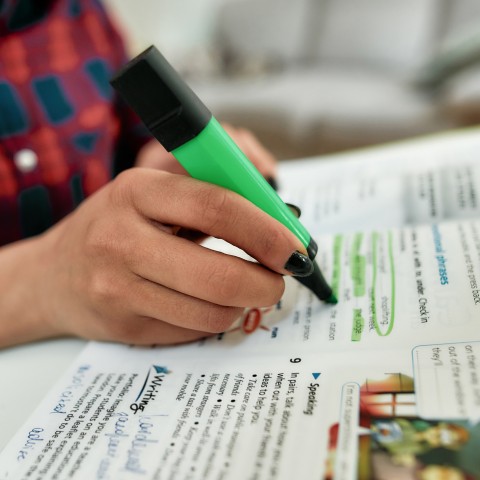
Czech Classroom Vocabulary––Supplies:
- Tužka – “Pencil”
- Pero or Propiska – “Pen”
- Poznámkový blok or Sešit – “Notebook”
- Pořadač – “Binder”
- Složka – “Folder”
- List papíru – “Sheet of paper”
- Kniha – “Book”
- Učebnice – “Textbook” (more common than “book”)
- Penál – “Pencil case”
- Pravítko – “Ruler”
- Guma – “Eraser”
- Nůžky – “Scissors”
- Kalkulačka – “Calculator”
- Ořezávátko – “Pencil sharpener”
Czech Classroom Vocabulary––Places and Things:
- Třída or Učebna (from the word učit – “learn”) – “Class” (the word “class” is more used in high schools and elementary schools)
- Kavárna – “Cafeteria”
- Sborovna – “Teacher’s room”
- Sekretariát – “Secretariat”
- Ředitelna – “Principal’s office”
- Kancelář – “Office”
- Menza – “University canteen”
- Knihovna – “Library”
- Kopírka – “Copy machine”
- Zkouška – “Exam”
- Test – “Test”
- Ústní zkouška – “Verbal exam”
- Písemná zkouška – “Written exam”
- Poslech – “Listening”
- Psaní – “Writing”
- Porozumění – “Understanding”
- Úkol – Homework
- Práce – “Assignment”
- Prezentace – “Slideshow” or “Presentation” or “Pitch”
3. What?: Czech Classroom Phrases When Asking for Clarification
Wisdom is knowledge, and as we say, žádný učený z nebe nespadl––”no educated one has ever fallen from the skies,” as in “practice makes perfect.”
- Nerozumím/nechápu. – “I don’t understand.”
- Můžete to zopakovat, prosím? – “Can you repeat that, please?” (formal voice, when asking the teacher)
- Můžu se na něco zeptat? – “Can I ask you something?” (literally just “can I ask on something”)
- Chci se na něco zeptat. – “I want to ask about something.”
- Co řekl/řekla? – “What did he/she say?”
- Můžete mi vysvětlit tuhle část, prosím? – “Could you explain this part to me, please?”
- Chci se ujistit, že to chápu. – “I want to make sure I understand this.”
- Není mi jasná jedna věc. – “One thing isn’t clear to me.”
- Co to znamená? – “What does it mean?”
- Takže to neznamená, že… – “So it doesn’t mean that…”
For more Czech questions (with pronunciation!), check out these lists.

4. Dog Ate My Homework: Czech Classroom Phrases for Apologizing and Absence
How to tell the teacher you aren’t able to attend their class or why you didn’t attend or why you were late? Read on:
- Není mi dobře, dnes nepřijdu. – “I’m not feeling well. I won’t be able to attend school today.” (literally just “I won’t come.”)
- Omlouvám se za zpoždění, musel/a jsem… – “Sorry I’m late. I had to…” (literally, “I’m sorry for the delay”)
- Můj pes mi sežral úkol. – “My dog ate my homework.”
- Chci se omluvit z dnešní hodiny, jdu k lékaři. – “I want to excuse myself from today’s lesson, I have a doctor’s appointment.” (literally, “I’m going to a doctor.”)
- Omlouvám se, nemám tu práci hotovou. – “I am sorry, I didn’t finish the assignment.” (literally “I don’t have the assignment finished.”)
- Omlouvám se, zapomněl/a jsem. – “I am sorry, I forgot.”
- Omlouvám se, ale mám spoustu práce a nestihl/a jsem to. – “I am sorry, but I have a lot of work and I didn’t make it.”
- Neměl/a jsem čas si to přečíst. – “I didn’t have time to read it.”
5. Classroom Vocabulary in Czech: My Favorite Subject Is…
- V [subject] nejsem moc dobrý/á. – “I’m not good at [subject].”
- Můj oblíbený předmět je [subject]. – “My favorite subject is [subject].”
- Nejde mi [subject]. – Literally “[Subject] doesn’t go me”, as in “I am not good in [subject].
- Jde mi [subject]. – Again, “[Subject] goes me.”
- Nejradši mám [subject]. – “I like [subject] the most.”
- Nenávidím [subject]. – “I hate [subject].”
- Chci studovat český jazyk. – “I want to study Czech language.”
List of School Subjects in Czech:

- Matematika – “Math”
- Biologie – “Biology”
- Chemie – “Chemistry”
- Angličtina – “English”
- Čeština – “Czech”
- Tělocvik – “PE”
- Literatura – “Literature”
- Dějepis (elementary school) or Historie – “History”
- Psychologie – “Psychology”
- Sociologie – “Sociology”
- Filozofie – “Philosophy”
- Geometrie – “Geometry”
- Ekonomie – “Economy”
- Politologie – “Politology”
- Zeměpis (elementary school) or Geografie – “Geography”
- Marketing – “Marketing”
- Management – “Management”
6. How CzechClass101.com Helps You Learn Czech in a Fun Way
That’s it, guys! I hope you enjoyed this article and learned something new! If the Czech words and phrases listed in this article weren’t enough for you, and you want to keep learning, please check out our Basic Bootcamp––basic Czech for foreigners (grammar and vocab) in 5 compact lessons.
If you’re taking Czech language learning seriously and want to study Czech fast, free, and online, you might grab a Czech grammar book or learn online (which is way more convenient). Seriously, mastering a new skill has never been easier. Just grab your phone and get to work!
CzechClass101.com will make online Czech classes easy, exciting, and fun. With us, it’s not about endless memorizing or thick textbooks. Study Czech the better way – with us you’ll make progress faster than you could imagine!
What can you find in these awesome online Czech lessons?
- English to Czech translation and pronunciation tips/tricks
- Over 630 audio and video lessons
- Vocabulary learning tools
- Spaced repetition flashcards
- Detailed PDF lesson notes
- Czech for foreigners––the better way
Ready to study the Czech language? Sign up now, it’s free!
One last thing: Let us know in the comments what YOUR favorite subject was (in Czech, of course). Share some useful tips and tricks!











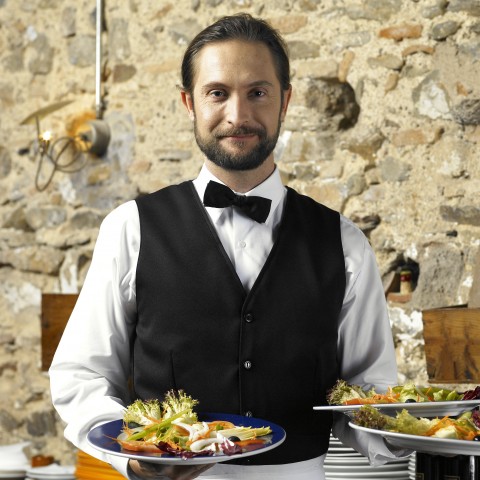



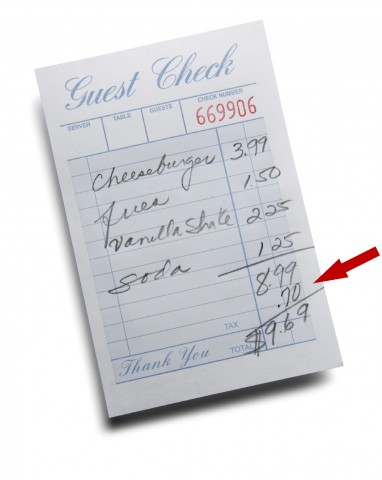








 Table of Contents
Table of Contents





